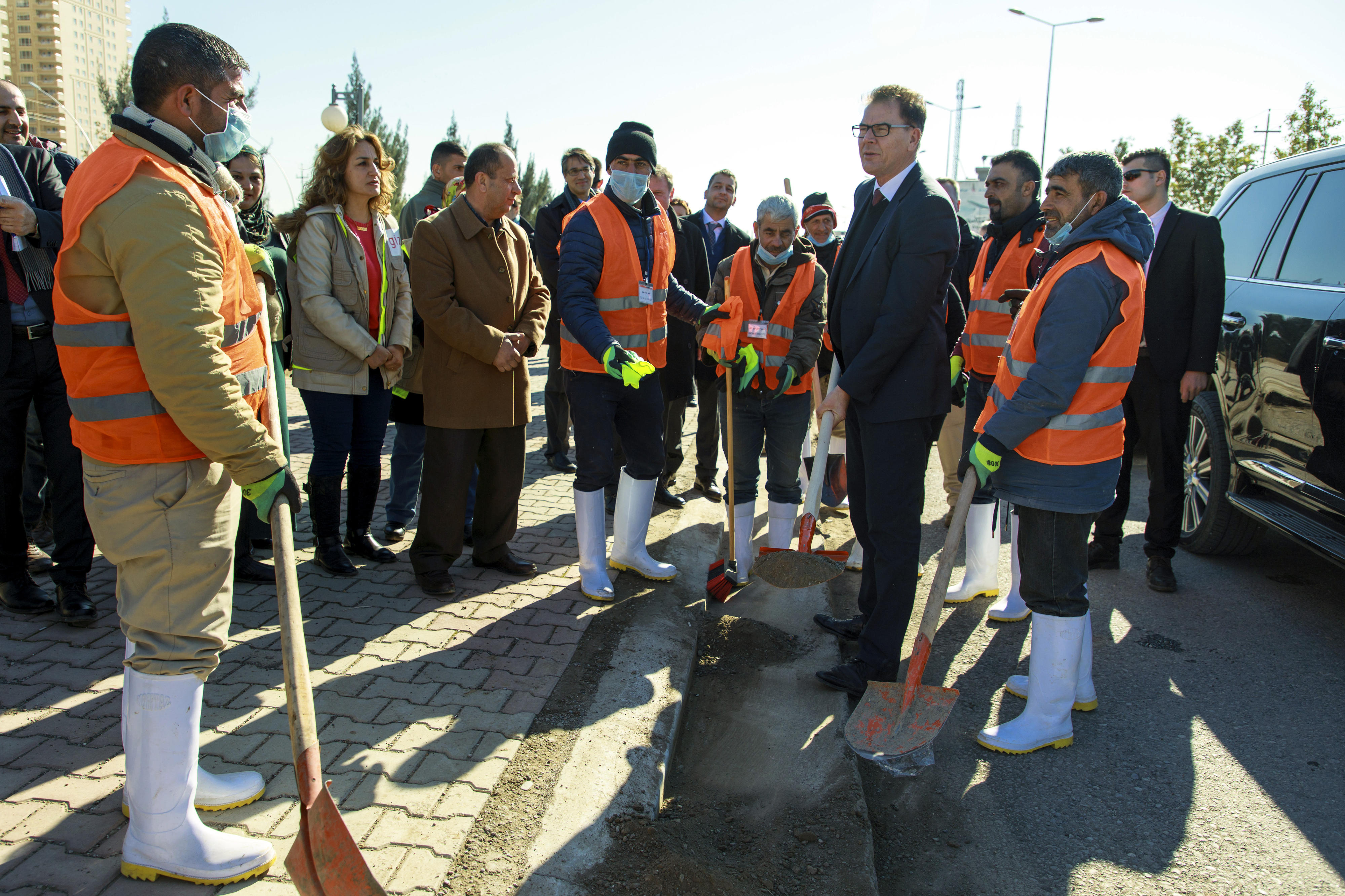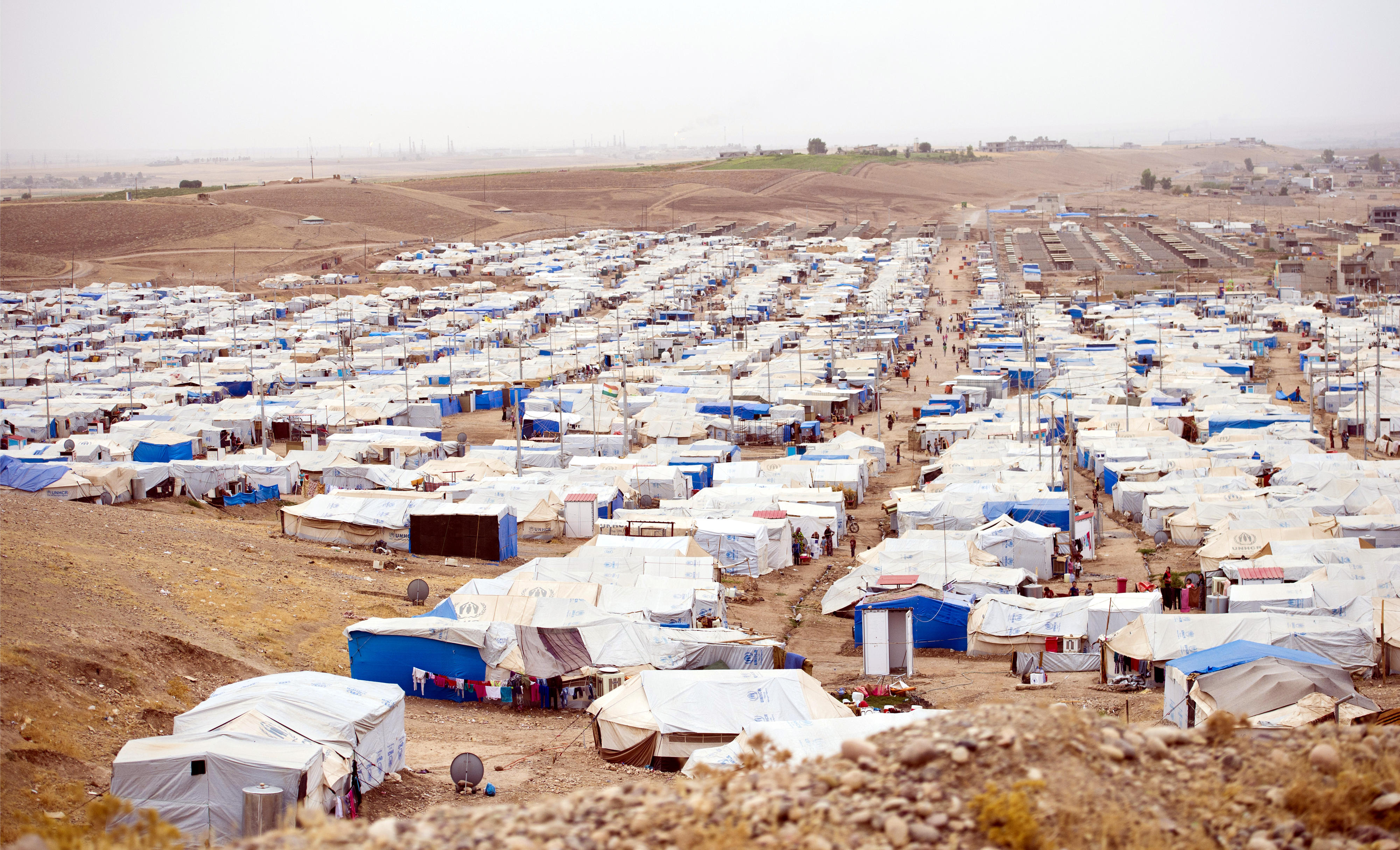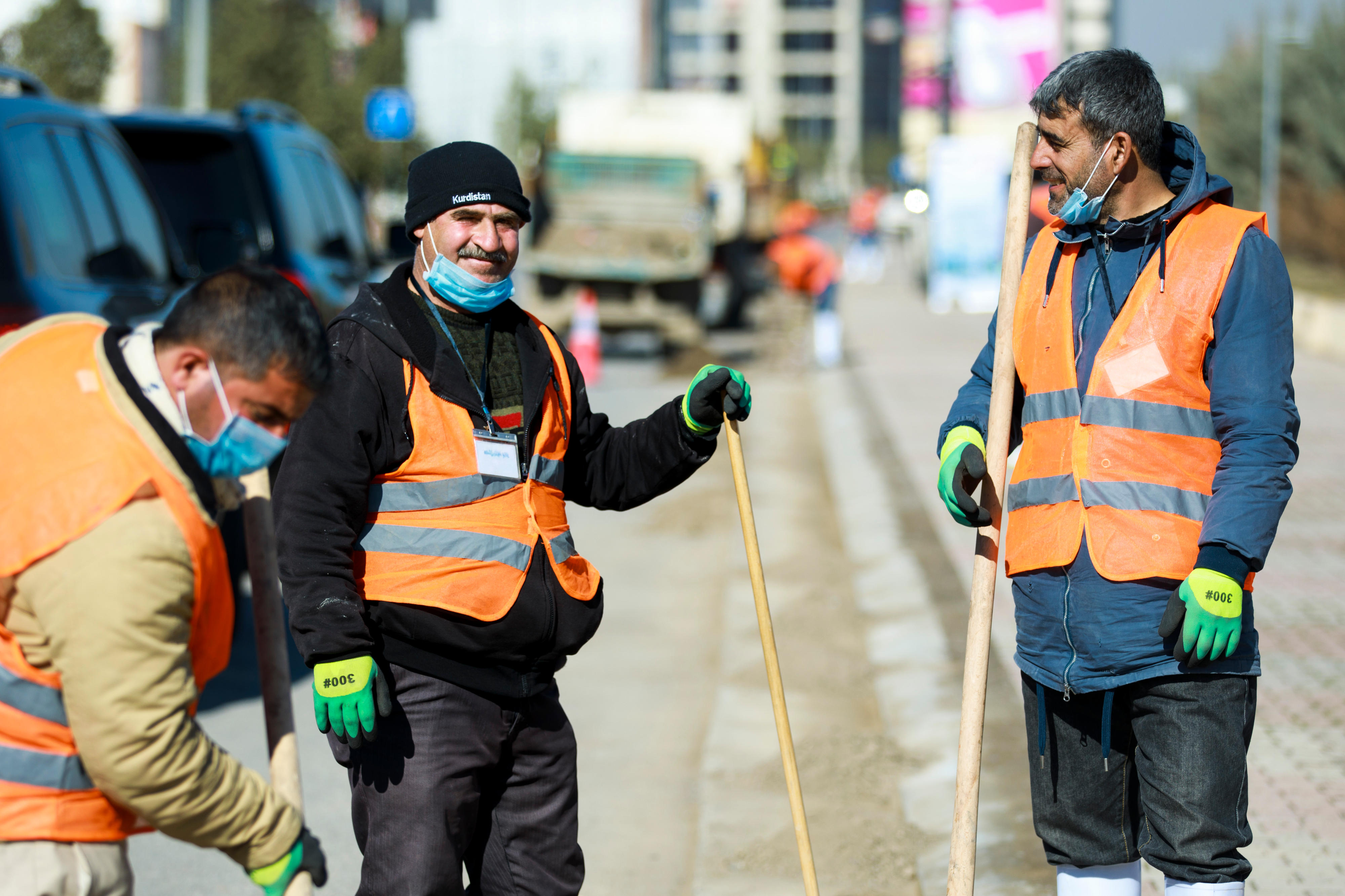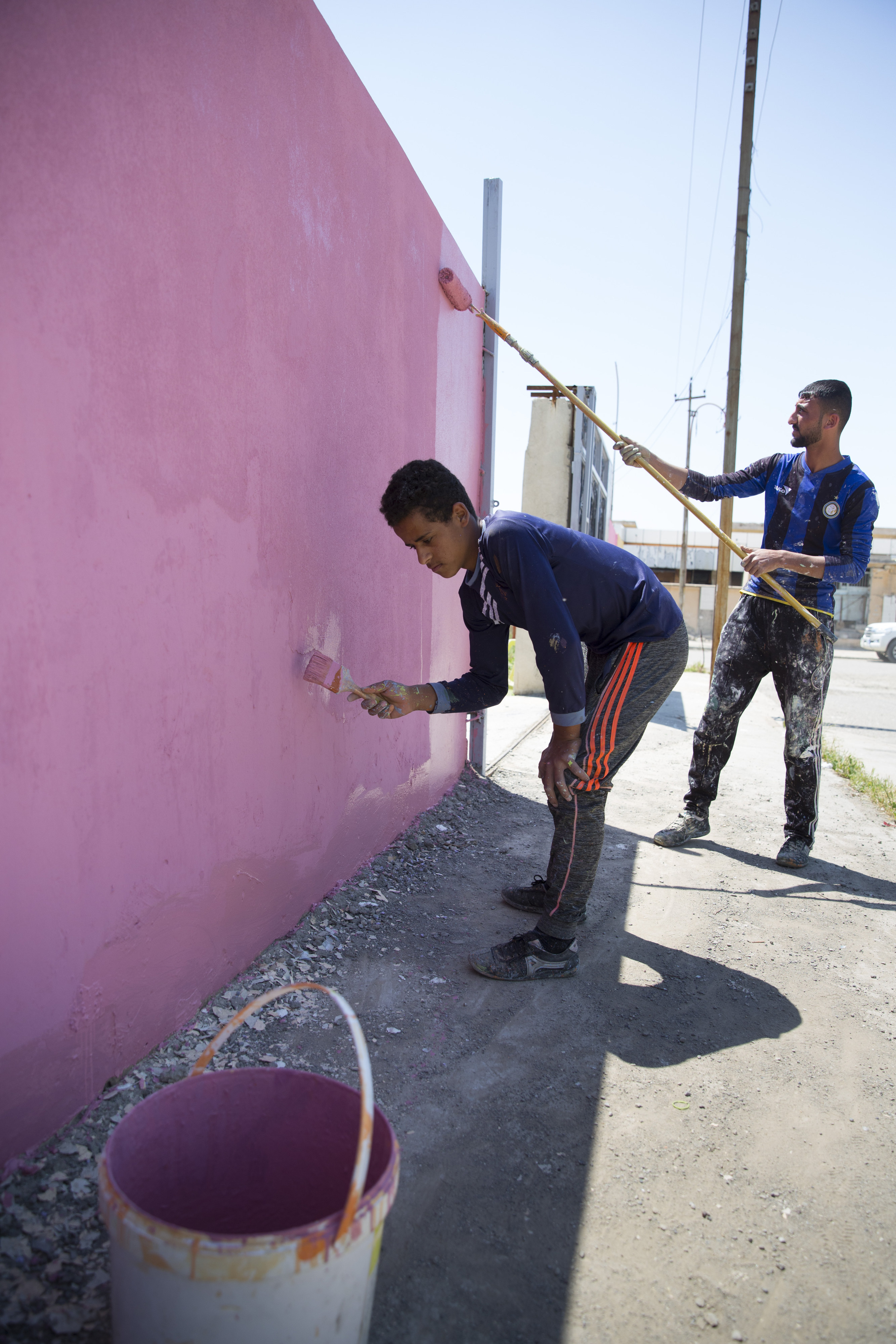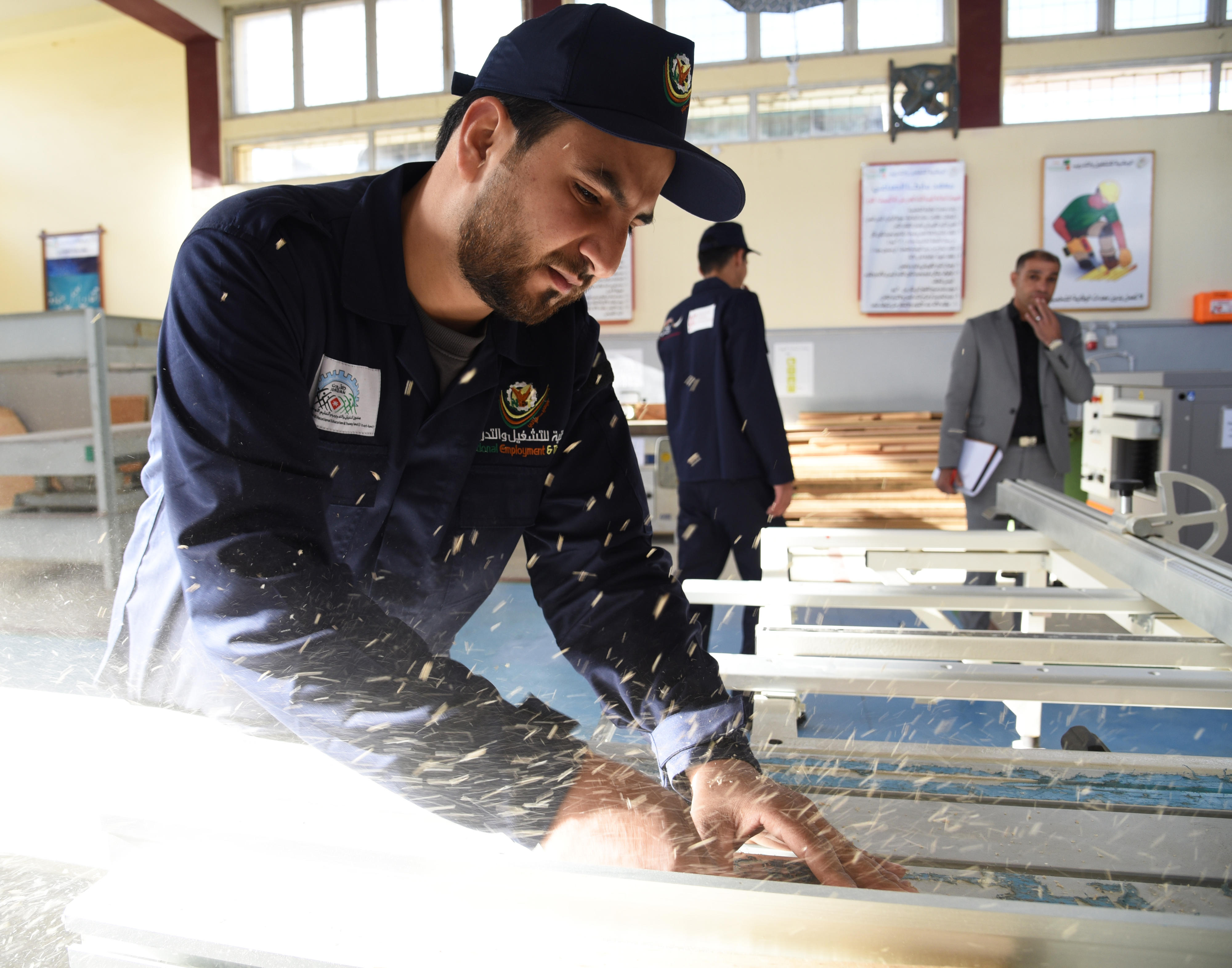A cash-for-work project in the Kurdistan Region of Iraq.
Copyright© Michael Gottschalk/photothek.net
Cash for Work The Partnership for Prospects
Iraq, too, is hosting around 300,000 people from Syria (as at December 2024). And Iraq has nearly one million people who have been internally displaced by attacks carried out by the terrorist organisation calling itself Islamic State (as at December 2024).
The German government is not leaving the people in the region around Syria to cope with these challenges alone. Beyond meeting the immediate basic needs of refugees, it helps refugees and local people through the Partnership for Prospects, an employment drive for the Middle East. The Partnership was launched at the international donor conference for Syria in February 2016. It provides new prospects for people on the ground, thus helping to stabilise host communities.
Objectives and implementation
In 2024, the BMZ committed a total of 180.9 million euros for the Partnership for Prospects.
The funding is channelled through the Special Initiative on Displacement and dedicated to the objectives described below.
Impacts
- In 2024, the Partnership for Prospects created around 45,700 jobs. In addition, around 7,000 people gained a long-term job.
- By funding additional positions for teachers and assistants, almost 280,000 children were able to be taught in 2024.
- Over 16,000 people are taking part in vocational training or further education, giving them career prospects in the medium term - also with regard to the reconstruction of their home country.
All these activities reduce the pressure on host cities and communities and help to ease tensions in the region.
Moreover, the increased purchasing power created through the additional income and the improved infrastructure strengthen the local economy. Thus, the Partnership for Prospects is in effect a local economic development programme.
As at: 17/07/2025
